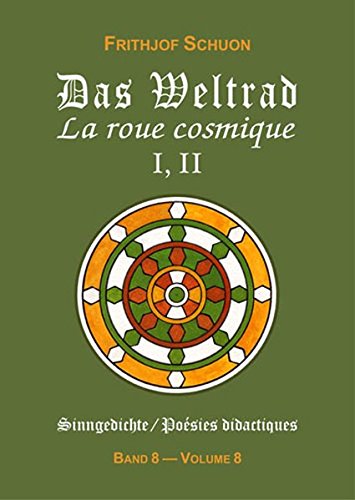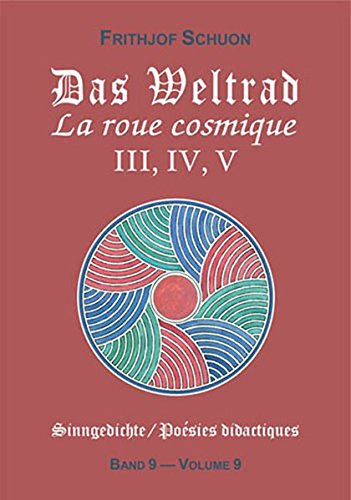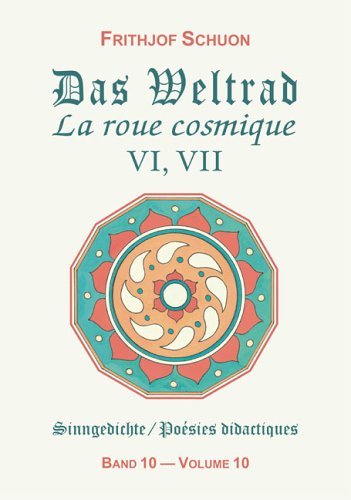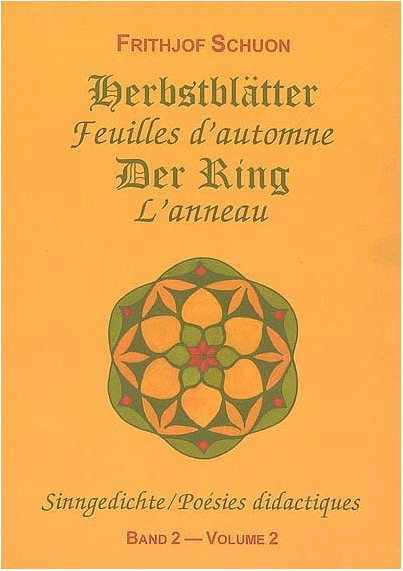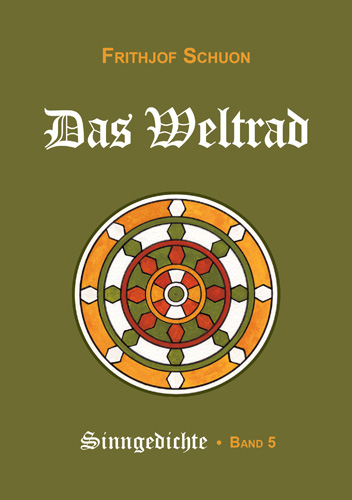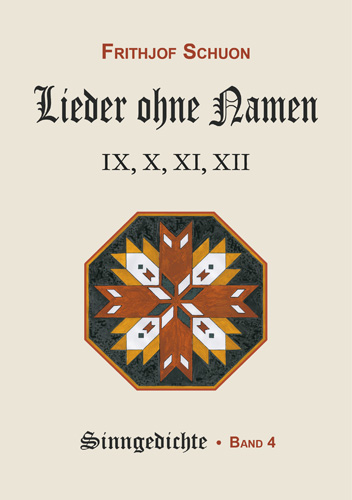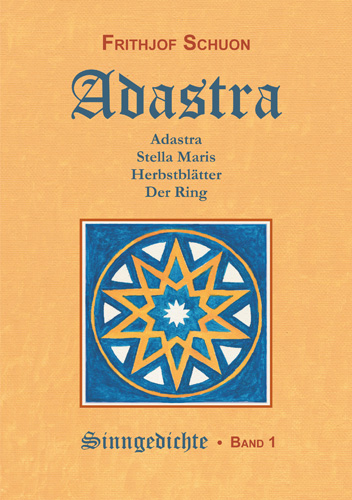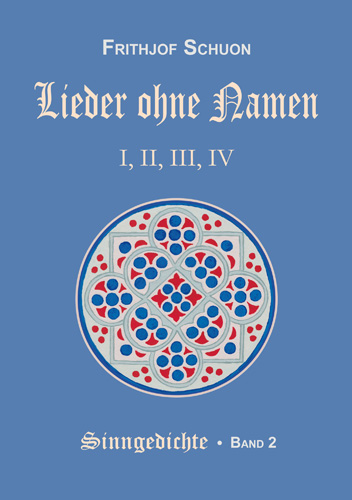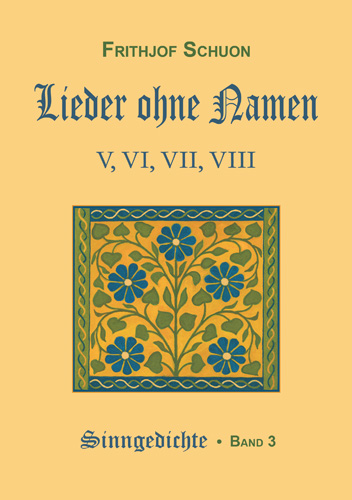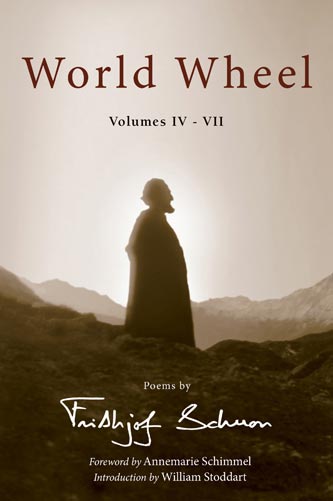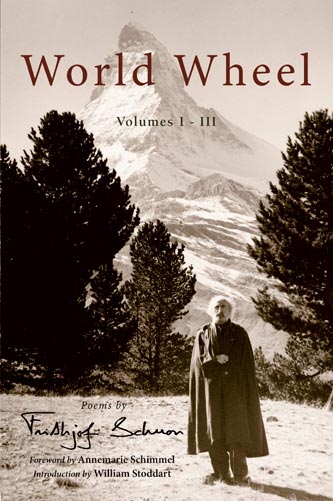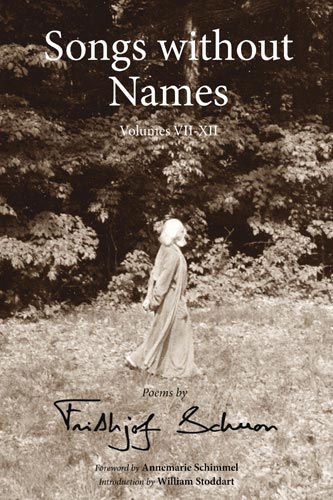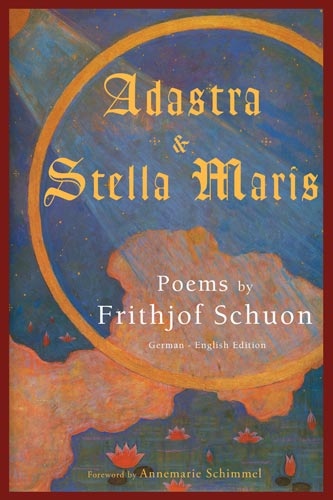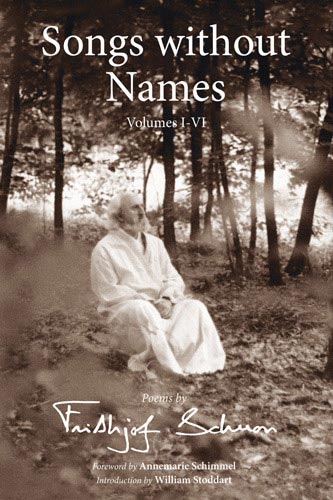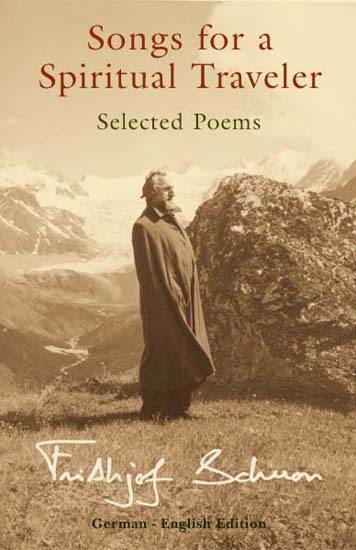
Frithjof Schuon Archive

Collections in Print
| Image | Title | Summary | Book Author | Book Subjects | Download | Price | hf:tax:book_subject | hf:tax:language |
|---|---|---|---|---|---|---|---|---|
| Das Weltrad 1, 2 | The German sense poems of Frithjof Schuon form a metaphysical and spiritual whole that unites the essential teachings of this master in a form that is both accessible and immediate. | Frithjof Schuon | Inspirational, Poetry | 35.84 | inspirational poetry | german | ||
| Das Weltrad 3, 4, 5 | The German sense poems of Frithjof Schuon form a metaphysical and spiritual whole that unites the essential teachings of this master in a form as accessible as it is immediate. | Frithjof Schuon | Inspirational, Poetry | 20.00 | inspirational poetry | german | ||
| Das Weltrad 6, 7 | As such, in their simplicity and directness, these poems may seem like a final mercy, a bit like a last lifeline thrown to us; mercy of a sage whose life and work can only be understood in the sign of giving, of conveying a core of certainty that is the key to happiness in this world and the next. | Frithjof Schuon | Inspirational, Poetry | 20.00 | inspirational poetry | german | ||
| Herbstblätter & Der Ring | The German sense poems of Frithjof Schuon form a metaphysical and spiritual whole that unites the essential teachings of this master in a form as accessible as it is immediate. | Frithjof Schuon | Inspirational, Poetry | 20.00 | inspirational poetry | french-2 german | ||
| Das Weltrad | The German sense poems of Frithjof Schuon form a metaphysical and spiritual whole that unites the essential teachings of this master in a form that is both accessible and immediate. | Frithjof Schuon | Inspirational, Poetry | 20.00 | inspirational poetry | german | ||
| Lieder ohne Namen IX-XII | The German sense poems of Frithjof Schuon form a metaphysical and spiritual whole that unites the essential teachings of this master in a form that is both accessible and immediate. | Frithjof Schuon | Inspirational, Poetry | 20.00 | inspirational poetry | german | ||
| Adastra | Frithjof Schuon’s German poems of meaning form a metaphysical and spiritual whole which unites the essential teachings of this Master in a form which is as accessible as it is immediate. | Frithjof Schuon | Inspirational, Poetry | 20.00 | inspirational poetry | german | ||
| Lieder ohne Namen I-IV | Frithjof Schuon’s German poems of meaning form a metaphysical and spiritual whole which unites the essential teachings of this Master in a form which is as accessible as it is immediate. | Frithjof Schuon | Inspirational, Poetry | 20.00 | inspirational poetry | german | ||
| Lieder ohne Namen V-VIII | Frithjof Schuon’s German poems of meaning form a metaphysical and spiritual whole which unites the essential teachings of this Master in a form which is as accessible as it is immediate. | Frithjof Schuon | Inspirational, Poetry | 20.00 | inspirational poetry | german | ||
| World Wheel: Poems by Frithjof Schuon Volumes IV-VII | A four-volume collection of spiritual poetry by Frithjof Schuon who wrote approximately 3,500 poems in his mother tongue German. | Frithhof Schuon | Inspirational, Metaphysics, Poetry | 22.00 | inspirational metaphysics poetry | english | ||
| World Wheel: Poems by Frithjof Schuon Volumes I-III | During the last three years of his life Frithjof Schuon wrote approximately 3,500 poems in his mother tongue German. | Frithjof Schuon | Inspirational, Metaphysics, Poetry | 22.00 | inspirational metaphysics poetry | english | ||
| Songs without Names: Poems by Frithjof Schuon Volumes VII-XII | During the last three years of his life Frithjof Schuon wrote approximately 3,500 poems in his mother tongue German. | Frithjof Schuon | Inspirational, Metaphysics, Poetry | 22.00 | inspirational metaphysics poetry | english | ||
| Adastra and Stella Maris: Poems by Frithjof Schuon | Adastra and Stella Maris: Poems by Frithjof Schuon represent the heart of Schuon’s German poems. These two books, combined in one volume, express, in the words of Annemarie Schimmel, “a mystery that lies beyond the normal human expression… | Frithjof Schuon | Inspirational, Metaphysics, Poetry | 19.95 | inspirational metaphysics poetry | english | ||
| Songs without Names: Poems by Frithjof Schuon Vol. I-VI | During the last three years of his life Frithjof Schuon wrote approximately 3,500 poems in his mother tongue German. | Frithjof Schuon | Inspirational, Metaphysics, Poetry | 22.00 | inspirational metaphysics poetry | english | ||
| Songs for a Spiritual Traveler: Selected Poems | The poetry of Frithjof Schuon has been called metaphysical music. English/German bilingual edition. | Frithjof Schuon | Inspirational, Metaphysics, Poetry | 13.95 | inspirational metaphysics poetry | english german |
Featured Books
Das Weltrad 6, 7
As such, in their simplicity and directness, these poems may seem like a final mercy, a bit like a last lifeline thrown to us; mercy of a sage whose life and work can only be understood in the sign of giving, of conveying a core of certainty that is the key to happiness in this world and the next.
Featured Poems
Adastra and Stella Maris: Poems by Frithjof Schuon-Modern World
Thou art born into a world that understands nothing,
Adastra and Stella Maris: Poems by Frithjof Schuon-Culpa
It is certain not every man is bad,
Adastra and Stella Maris: Poems by Frithjof Schuon-Animality
Mankind, they say, with reason is endowed,
Featured Articles
Frithjof Schuon And The Perennialist School
Foreword to “The Eye of the Heart”
Professor Huston Smith wrote the “Foreword” to the 1997 edition of Frithjof Schuon’s “The Eye of the Heart.” In it, Smith states unequivocally that he considers Schuon to be “the most important religious thinker of our century.” He explains this by pointing to Schuon’s solution to the thorniest issue facing those who believe in absolute Truth: Must there be only one valid Truth embodied in one religious tradition, thus excluding all others, or can there be another way in which absolute Truth can take on relative shadings, and still remain the Truth? Although Smith gives only brief attention to the specific contents of the book, he does summarize his thoughts with this: “Again in this book, as everywhere in Schuon’s writing, one is struck by the hierarchical, vertical character of his thinking — his depiction of an absolute and transcendent Reality that deploys itself through All-Possibility and ultimately returns to Itself through human beings ‘made in the image of God.'”
